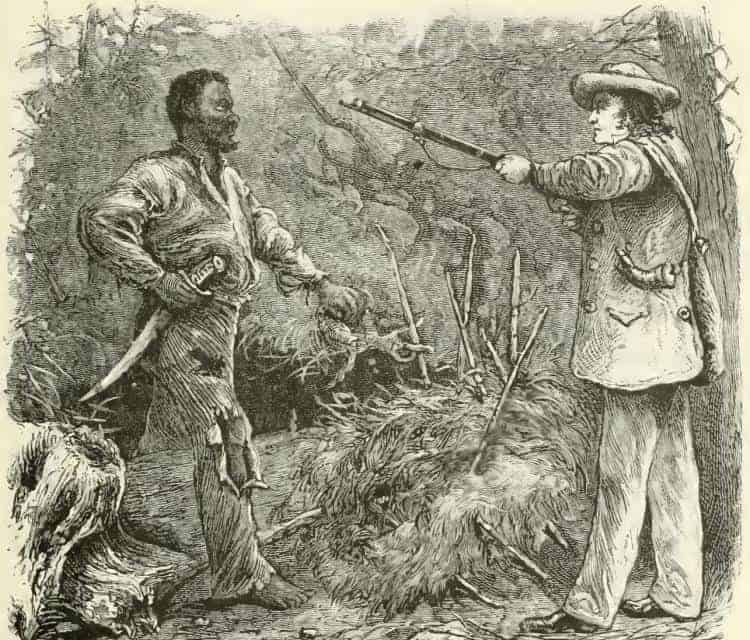On this date in history Nat Turner, the leader of a bloody slave revolt in , Virginia, was executed. He was publicly executed in Jerusalem, the county seat of Southampton County.
Turner was a remarkable man who was personally brave and charismatic. Turner had a great influence over both slaves and white people and he claimed to have received visions from God. He was something of a rarity, in that he was well-educated for a slave and was also a Minister. One day he had a religious experience and believed that God had called him to lead his fellow African-Americans’ out of slavery. After planning his revolt and recruiting some supporters he launched his revolt on August the 21st 1831. He started his revolt by killing his owner Joseph Travis and his family.
One day he had a religious experience and believed that God had called him to lead his fellow African-Americans’ out of slavery. After planning his revolt and recruiting some supporters he launched his revolt on August the 21st 1831. He started his revolt by killing his owner Joseph Travis and his family. At first, he had only seven followers who were armed with some old muskets. His plan was simple he hoped to encourage other slaves to revolt and to attack their masters. Turner and his followers hoped to attack and seize the county armory in Jerusalem. They hoped to seize the firearms to equip as many slaves as possible in the county so that they could resist any attempts to repress the revolt. After seizing guns and gun powder Turner proposed to march over a dozen miles to the area known as the Dismal Swamp. In this remote and inhospitable area, the slaves could resist the white slave owners and any other forces that tried to return them their masters and slavery.

Turner gathered together some 75 slaves who left their master. They went on a rampage throughout the countryside and in total, they killed several dozen white people. The governor called out the all-white militia to end the insurrection of Turner and the other slaves. The rebellion was soon crushed when the militia caught up with the slaves and dispersed them easily. During the brief insurrection, many African-Americans were murdered on the spot even if they had nothing to do with the rebellion.
Turner and some of his followers managed to escape and they went on the run and escaped the militia for several weeks. Turner was captured in October and was put on trial. He claimed that his rebellion was sanctioned by God and the Bible. Turner freely admitted his role in the uprising and he did not express any regret.
Nat Turner’s rebellion was the largest single slave revolt in the history of America. It caused a near panic in the slave-owning states in the south and it led to a wave of new laws, aimed at preventing another outbreak. Among these was legislation forbidding the assembly and education of slaves. They were also forbidden to move or travel without the permission of their masters. These laws managed to prevent any major slave uprising until the American Civil War

